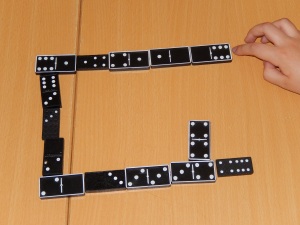MATHEMATICS
As Maths week kicks off in Ireland on Oct. 11th-16th. here is the link to a selection of videos specifically aimed at helping parents to assist their children with the subject area of Mathematics:
Helping your child with Maths – some videos
Most parents know that if you take your children to the library, read aloud to them, provide them with books and let them see you reading, this will provide them with a really good start towards enjoyment of reading and therefore reading well. But how can we help them to enjoy Mathematics in the same way? Here are some ideas for you to consider as you and your family are doing mathematics at home. They will help you and your children to see that maths is beautiful and exciting and fascinating and meant to be enjoyed. What a great gift to give your family! (Acknowledgement to Stenmark, Thompson and Cossey, Family Math, 1986, for some of the ideas found below.)
Let your children know that you believe they can succeed. Let them see you enjoying Maths. Children often emulate their parents, and if they hear you saying ‘You know, this is really interesting,’ they may feel the same.
Be ready to talk with your children about Mathematics and to listen to what they are saying. Even when you yourself may not know how to solve a problem, asking a child to explain the meaning of each part of the problem will probably be enough to help them along.
Be more concerned with the processes of doing mathematics than with getting the correct answer. Sometimes, the answer to any particular problem in school is not the most important thing, but knowing how to find the answer is a lifetime skill.
Try not to tell children how to solve the problem. Once they have been told how to do it, thinking usually stops. Better to ask them questions about what they’re doing and encourage them to find their own way of working things out.
Practise estimation with your children wherever possible. This helps them to think about the problem and is one of the most useful tools available to children. For example, filling the bath, measuring pasta, distance from home to school, time for homework.
Provide a special place for study. Match the environment to their learning style. Some children really do work better sprawled on the floor or bed, or with a musical background. There are no hard and fast rules.
Expect children to do their homework carefully but try to keep your comments positive. Look at the completed homework regularly. Don’t become a drill sergeant. Praise your child for asking questions, and look for opportunities where you can ask them questions about their work. Experts tell us that careful homework can really help children become successful in Maths.
A fun website which might help your child to learn his or her tables: http://www.youtube.com/watch?v=twv-ynv_m9o
Don’t expect that all homework will be easy. Try to stay positive in the face of difficulty. Never indicate that you feel your child is stupid. Sometimes, negative messages can be given unintentionally, for example,
“Even your little sister can do that”,
“Hurry up, can’t you see what the answer is?”,
“Don’t worry, I was hopeless at Maths, too”,
“Don’t worry, you’ll never use this when you grow up”,
“How come you can’t do this when you’re so good at everything else?”.
Help out with your child’s class in school. Avail of any opportunity which suits to help out. This conveys an important message to your child about the importance you attach to Maths.
Look carefully at the standardised test results on your child’s report card. Ask about any result which indicates a deficiency or any score which you don’t understand. But do not rely too much on these scores as your primary means of assessment. The teacher’s observations and your own will be much more valuable. Some of the most important attributes, such as sticking with a problem, using a good range of strategies or attention to detail, are not always reflected in standardised test results.
Don’t use Maths as punishment. Try not to drill your child too much on maths content or insist that work be done at any one specific time or in a specific way. Parents and children probably have enough issues to deal with without adding maths to the list.
Set an example of persistence and pleasure with mathematics. Include recreational maths in your family routines. Try to introduce mathematical ideas (with a light touch!) at the dinner table, or while travelling or shopping. Dividing the pizza, buying sweets, weighing the flour, keeping a height chart over the years all involve mathematics.
Play mathematical games at home. Children may enjoy Rummikub, Tangrams, Connect 4, Playing Cards, Snakes and Ladders, Ludo, Frustration, Sudoku, Chess and other strategic games.
Above all, enjoy Mathematics!

